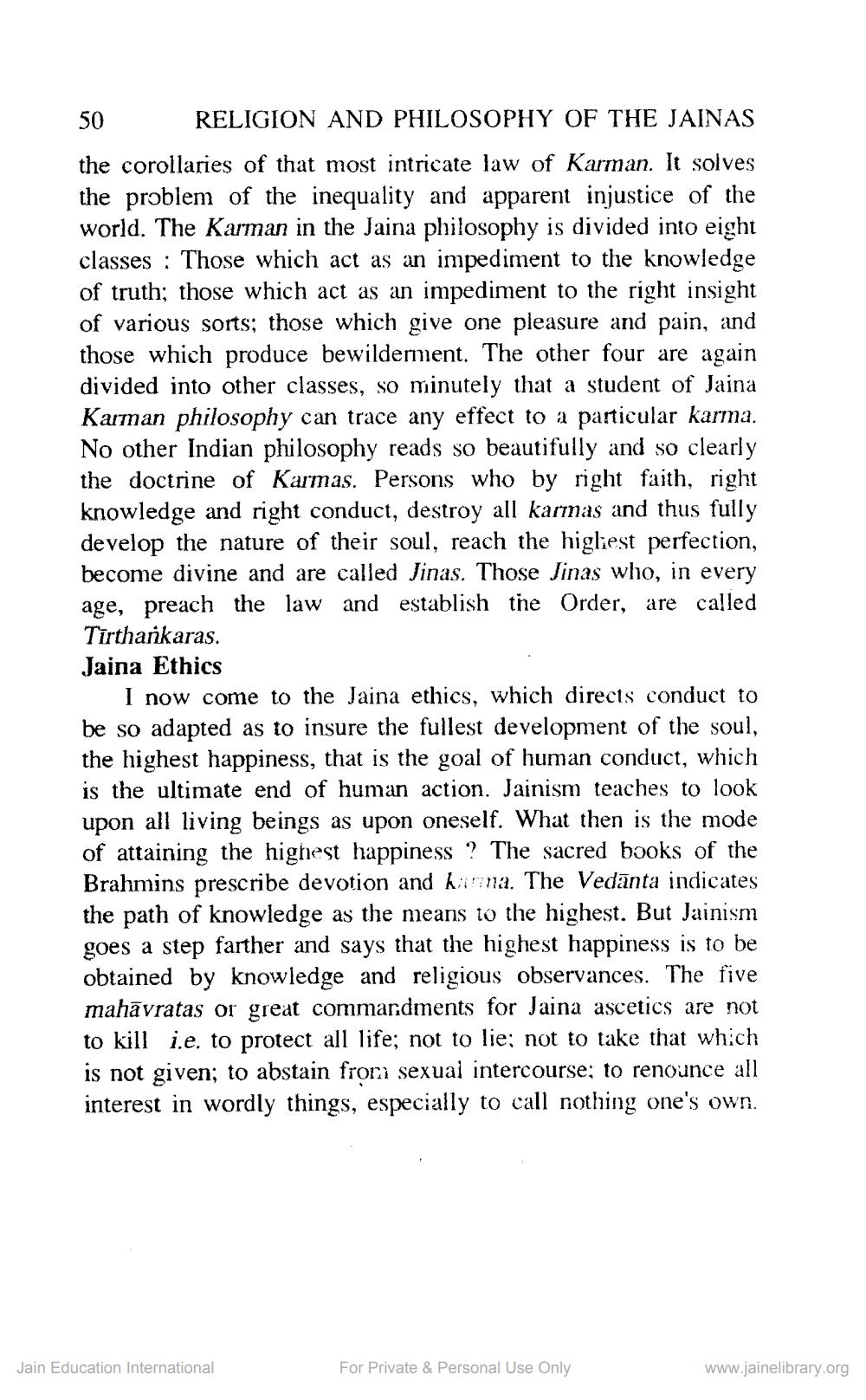________________
50 RELIGION AND PHILOSOPHY OF THE JAINAS the corollaries of that most intricate law of Karman. It solves the problem of the inequality and apparent injustice of the world. The Karman in the Jaina philosophy is divided into eight classes : Those which act as an impediment to the knowledge of truth; those which act as an impediment to the right insight of various sorts; those which give one pleasure and pain, and those which produce bewilderment. The other four are again divided into other classes, so minutely that a student of Jaina Karman philosophy can trace any effect to a particular karma. No other Indian philosophy reads so beautifully and so clearly the doctrine of Karmas. Persons who by right faith, right knowledge and right conduct, destroy all karmas and thus fully develop the nature of their soul, reach the higliest perfection, become divine and are called Jinas. Those Jinas who, in every age, preach the law and establish the Order, are called Tīrthankaras. Jaina Ethics
I now come to the Jaina ethics, which directs conduct to be so adapted as to insure the fullest development of the soul, the highest happiness, that is the goal of human conduct, which is the ultimate end of human action. Jainism teaches to look upon all living beings as upon oneself. What then is the mode of attaining the highest happiness ? The sacred books of the Brahmins prescribe devotion and k na. The Vedānta indicates the path of knowledge as the means to the highest. But Jainism goes a step farther and says that the highest happiness is to be obtained by knowledge and religious observances. The five mahāvratas or great commardments for Jaina ascetics are not to kill i.e. to protect all life; not to lie; not to take that which is not given; to abstain fron sexual intercourse; to renounce all interest in wordly things, especially to call nothing one's own.
Jain Education International
For Private & Personal Use Only
www.jainelibrary.org




